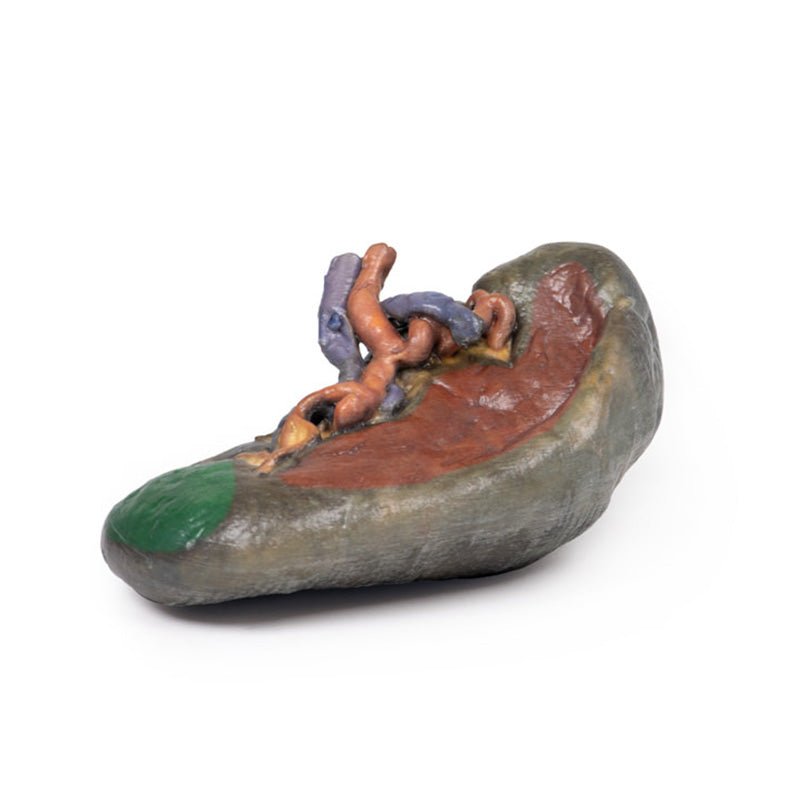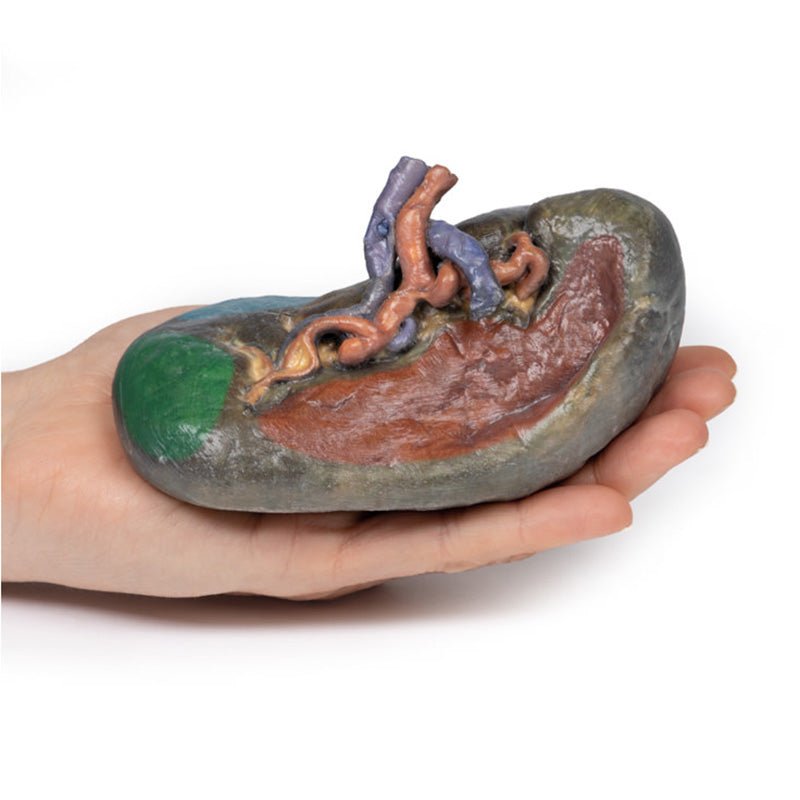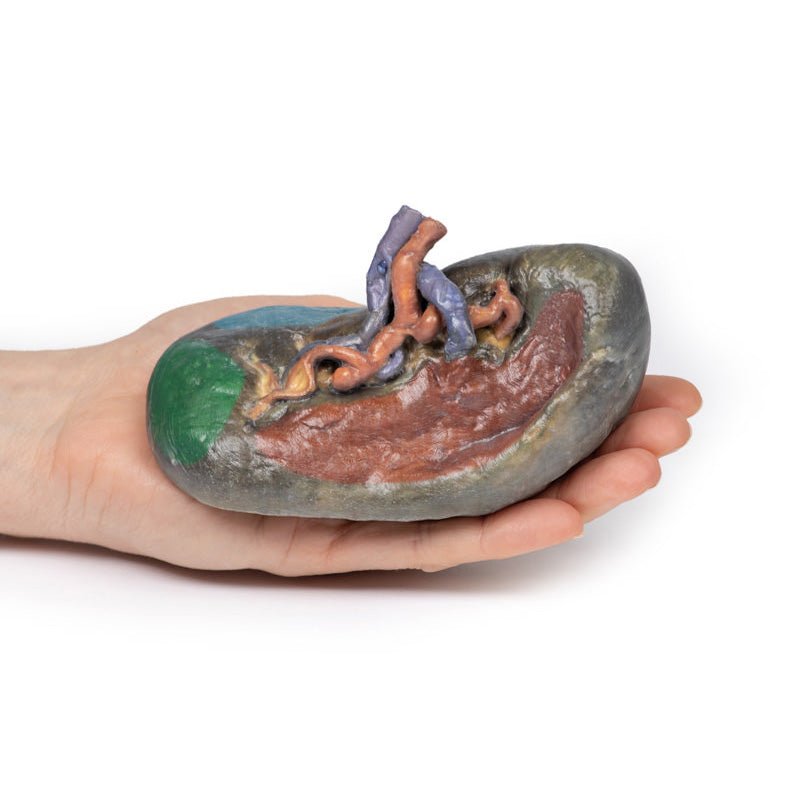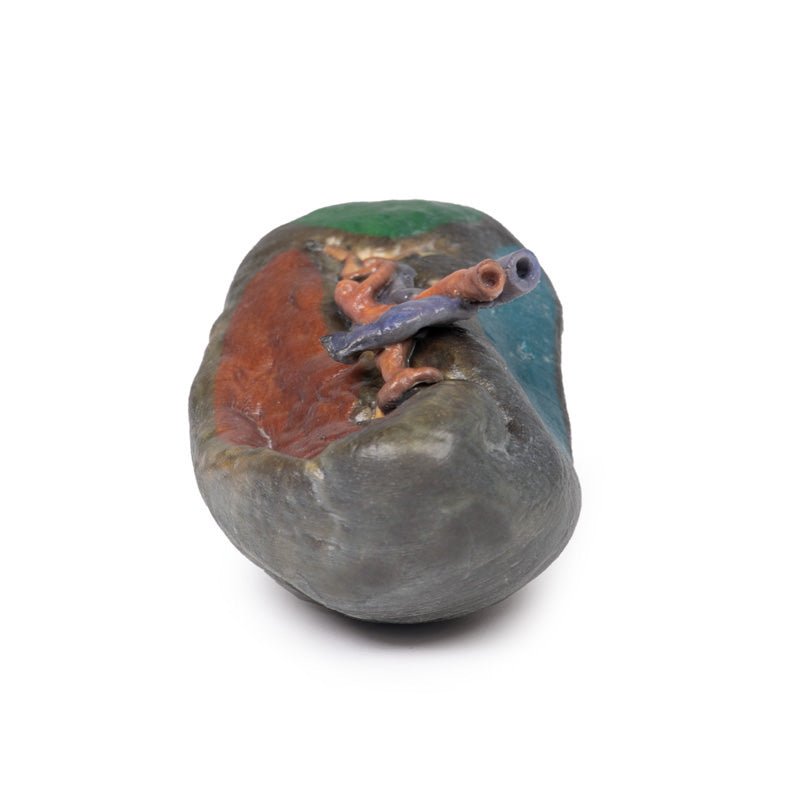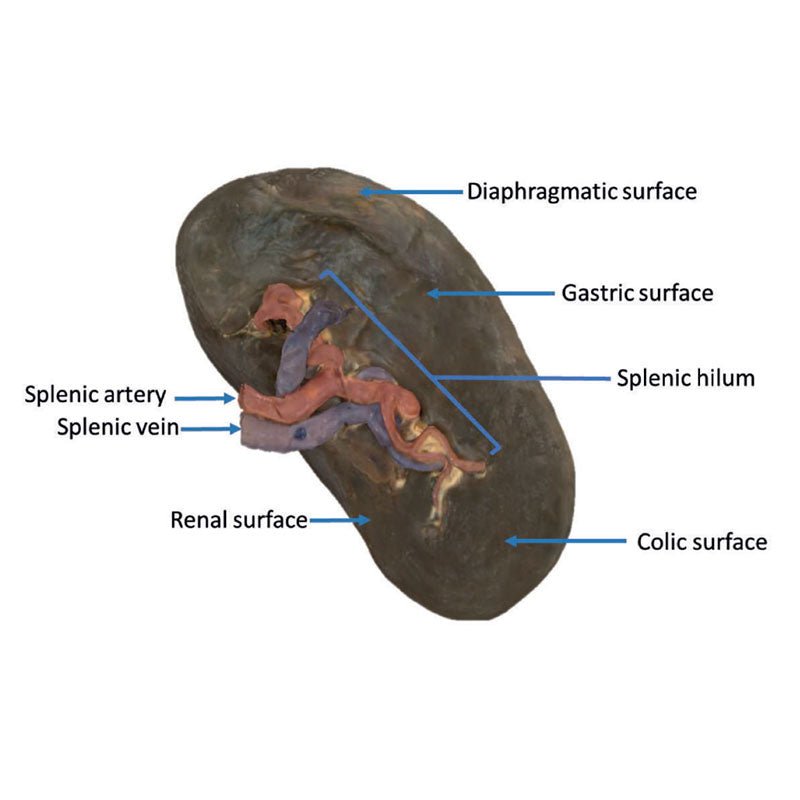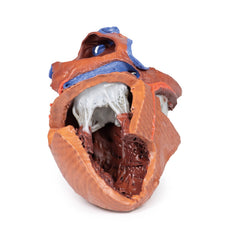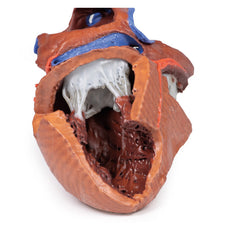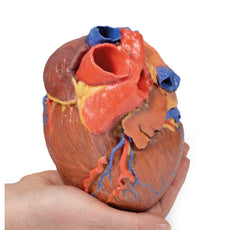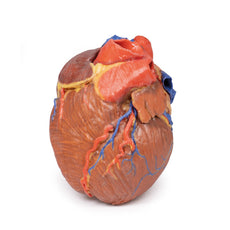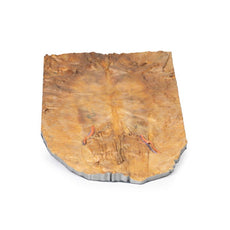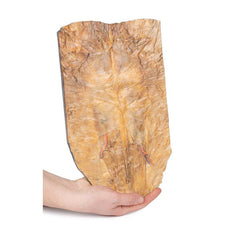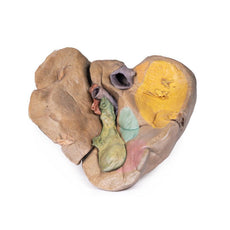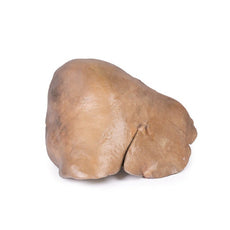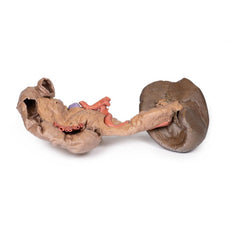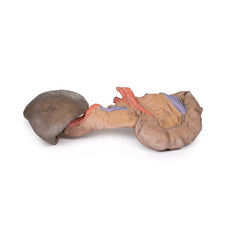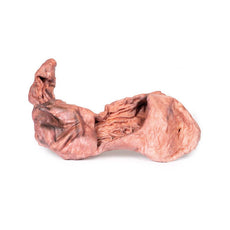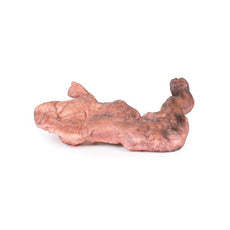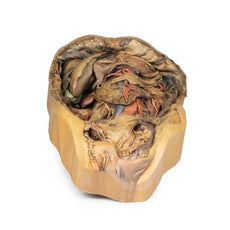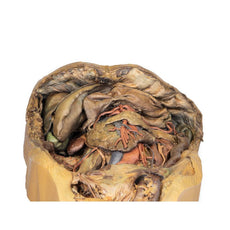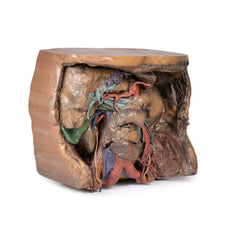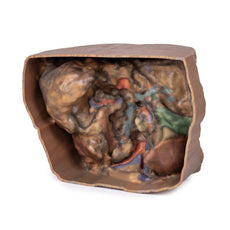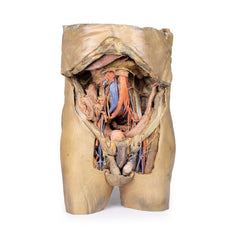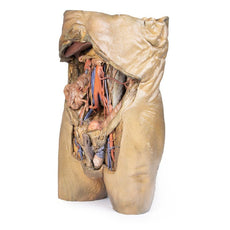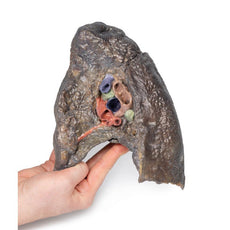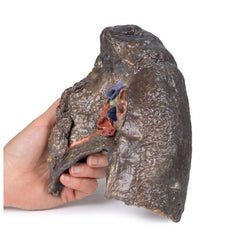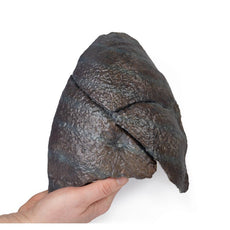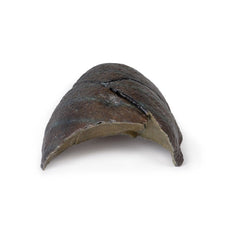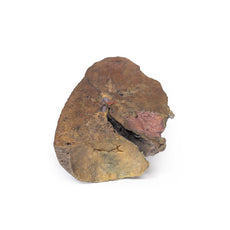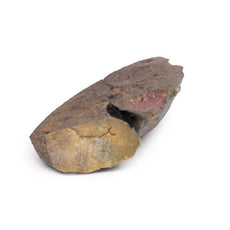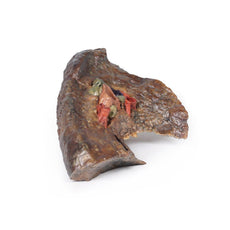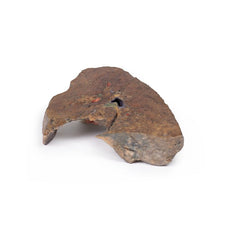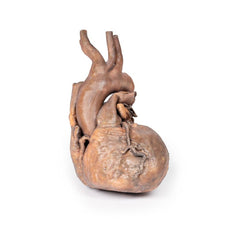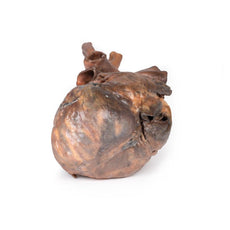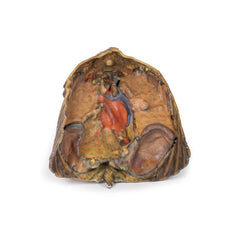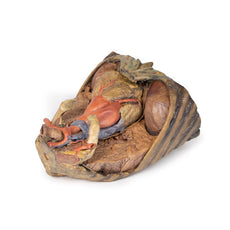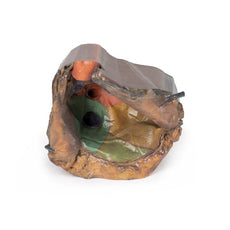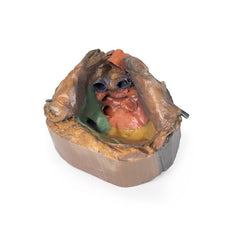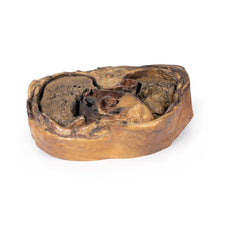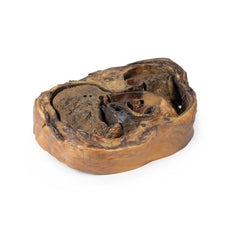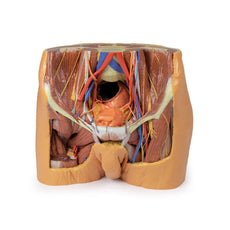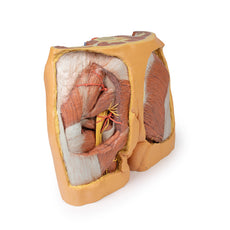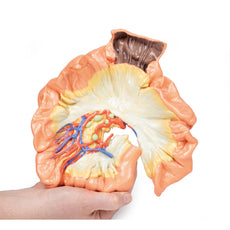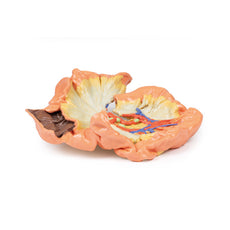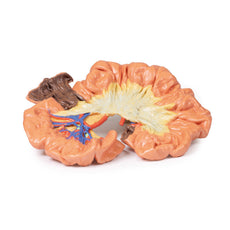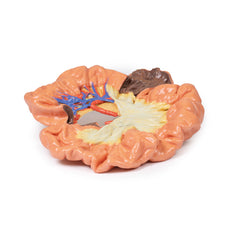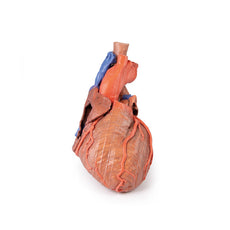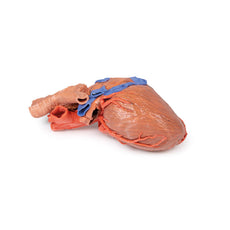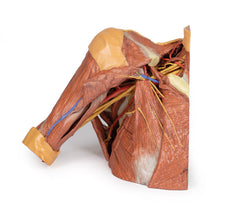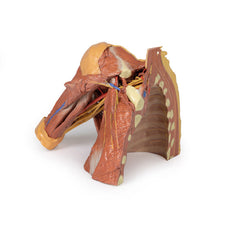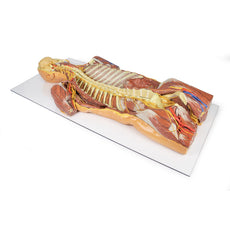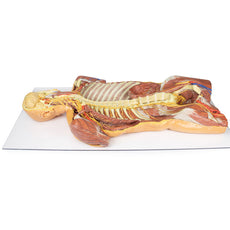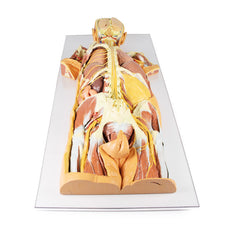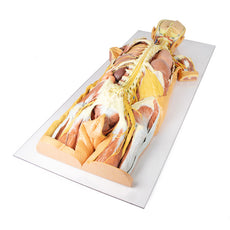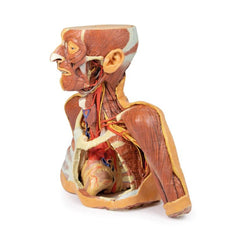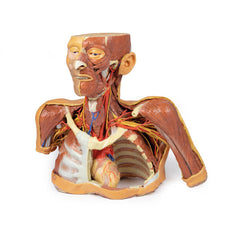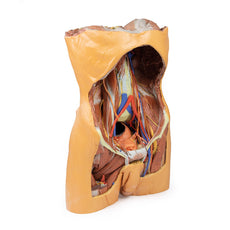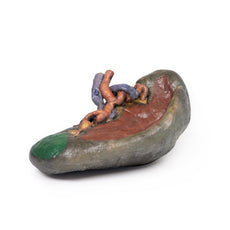Your shopping cart is empty.
3D Printed Vasculature of the Spleen
Item # MP1132Need an estimate?
Click Add To Quote

-
by
A trusted GT partner -
FREE Shipping
U.S. Contiguous States Only -
3D Printed Model
from a real specimen -
Gov't pricing
Available upon request
3D Printed Vasculature of the Spleen
At the splenic hilum, the splenic artery and vein can be seen entering the spleen to
supply and drain the organ. The opening of the splenic vein has been kept patent by the insertion of silicon tubing
in the model. This model shows the most superior branch of the splenic vein has been sectioned from its normal
passage into the spleen. The “tortuous” of twisted shape of the splenic artery can be appreciated as it branches at
the hilum. This reflects the overall curled and twisted shape of the vessel across its course from the coeliac trunk
to the spleen.
The splenic artery and vein give rise to short gastric vasculature as well as the left gastro-omental vasculature.
In this specimen, the splenic artery and vein have been cut after these vessels have branched, and thus they cannot
be seen in the model.
The splenorenal ligament connects the spleen to the left kidney and contains the splenic artery, splenic vein and
tail of the pancreas. It is formed by the overlaying of peritoneum that was originally part of the dorsal mesentery
during embryological development over this vasculature. The splenorenal ligament is not observable on the model as
the peritoneum has been removed in order to expose the splenic vasculature.
The gastrosplenic ligament connects the stomach to the spleen and contain the short gastric arteries and part of the
left gastro-omental artery at its origin as it branches off the splenic artery. Like the splenorenal, the
gastrosplenic ligament is formed by the overlaying of peritoneum that was originally part of the dorsal mesentery
during embryological development. The gastrosplenic ligament is not present as the splenic artery has been dissected
after its formation.
The outside of the spleen consists of a thin fibrous capsule. Due to its delicate nature and the large quantity of
blood usually contained in the spleen, the fibrous capsule is vulnerable to rupture.
 Handling Guidelines for 3D Printed Models
Handling Guidelines for 3D Printed Models
GTSimulators by Global Technologies
Erler Zimmer Authorized Dealer
The models are very detailed and delicate. With normal production machines you cannot realize such details like shown in these models.
The printer used is a color-plastic printer. This is the most suitable printer for these models.
The plastic material is already the best and most suitable material for these prints. (The other option would be a kind of gypsum, but this is way more fragile. You even cannot get them out of the printer without breaking them).The huge advantage of the prints is that they are very realistic as the data is coming from real human specimen. Nothing is shaped or stylized.
The users have to handle these prints with utmost care. They are not made for touching or bending any thin nerves, arteries, vessels etc. The 3D printed models should sit on a table and just rotated at the table.




